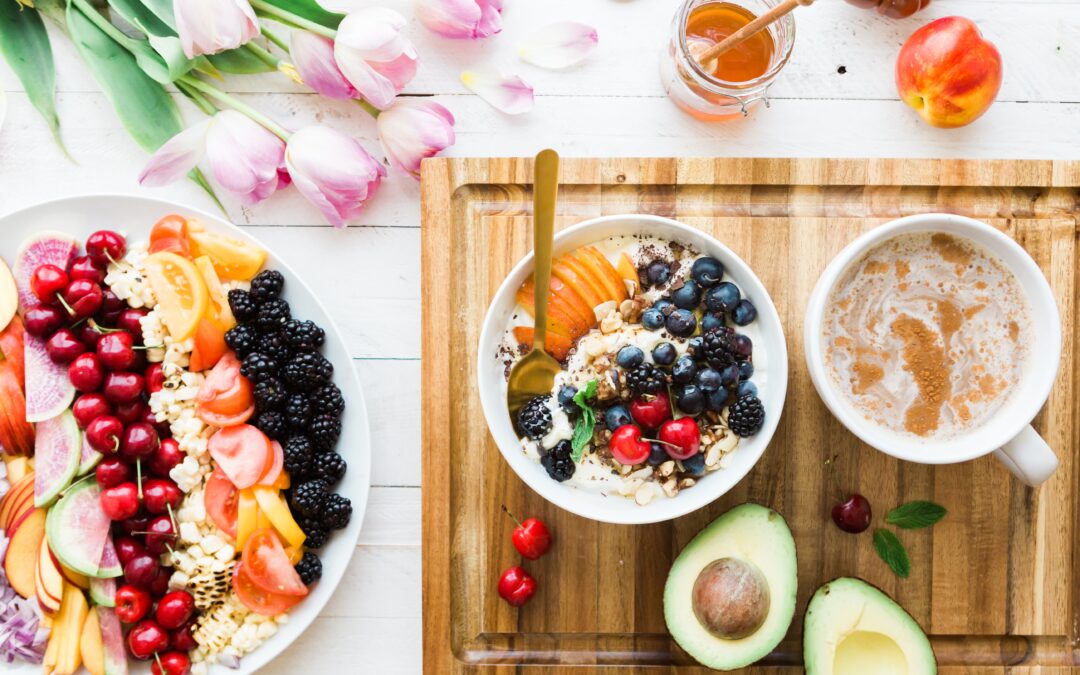Think of your favourite athlete and what he or she must do to prepare for a competition. It goes beyond a physical skill and extends into areas of nutrition, sleep and mental health. When it comes to completing your dissertation, consider yourself an academic athlete. All areas of your health need to be in peak condition to perform optimally.
We recently discussed the need for proper sleep while going through the dissertation process. Now, let’s discuss the critical importance of nutritional needs when working through your Ph.D.
Eating for Peak Mental Acuity
My grandmother used to refer to fish as “brainfood.” I considered this advice to be just another one of her old-time rules, like when she insisted I sleep with all the windows closed because night air was bad for me. Years later, it seems like grandmother was right. There are scientifically solid recommendations for eating specific foods like fish to help ensure mental clarity.
These Foods Support Brain Health, Increase Concentration and Improve Memory
Fatty Fish
Seafood such as salmon, albacore tuna, sardines, trout and herring contain omega-3 fatty acids which build brain and nerve cells and are essential for memory and learning. A tunafish sandwich or can of sardines might be the best choice for lunch on a busy day.
Coffee, the Elixir of Academia!
Recent research has shown that three to four cups a day reduce the risk of neurological diseases. Caffeine and antioxidants increase alertness and may boost dopamine levels that feed your “feel-good” neurotransmitters and raise your ability to concentrate. (Just remember: since too much coffee can lead to increased anxiety and insomnia, count your cups.)
Green Tea
With less caffeine and a heaping helping of antioxidants (via catechins), green tea is an excellent alternative for those avoiding coffee. Green tea enhances cognitive function and improves memory. For additional antioxidant benefits, add some lemon to your cup.
Green, Leafy Veggies
Vegetables such as broccoli, spinach and kale are rich in nutrients that are considered brain-healthy and may even slow cognitive decline.
Berries
Strawberries and blueberries contain flavonoids, which help boost memory and delay memory loss. Berries are also a smart pick-me-up when your blood sugar wanes (a better choice than that can of soda or candy bar).
Nuts
Nuts (in particular, walnuts) are a vegetarian or vegan go-to choice when looking for a protein-rich, stabilizing snack while working on writing tasks. Walnuts are also proven to support better cognitive performance and memory improvement.
Turmeric
For many a student, curry is a popular dish of choice. Not only is it delicious but curry’s core ingredient, curcumin, has shown to improve memory and mood (And, let’s face it: enhancing mood while working on your dissertation matters.)
Dark Chocolate
Why not save the best for last? Dark chocolate (not milk chocolate, unfortunately) is rich in plant chemicals called flavanols. These chemicals lead to increased blood flow (more blood to the brain is always a good thing) and has been shown to reduce anxiety and ease depressive symptoms. Just make sure you buy high-quality chocolate which is over 70% cocoa.
While working on your dissertation, keep your academic athleticism in mind. All components of your health matter while making your way to that Ph.D. finish line and beyond.

